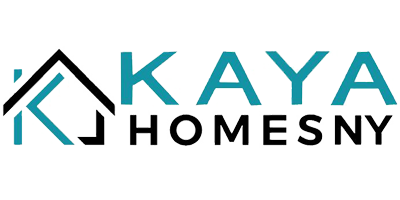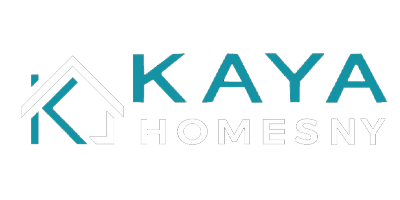Long Island’s foreclosure market is just the place for those investors and would-be homeowners ready to take a gamble. Foreclosed homes offer a unique way to invest or buy a home. With the right strategy, careful research, and a bit of courage, you might find an affordable path to owning property.
From bustling Nassau County to the more scenic regions of Suffolk, Long Island’s foreclosure market has a great depth with potential investments that could make real estate dreams a reality—and that is really unique. Are you ready to explore this challenging situation? With wise planning and steady patience shown in this guide, you can easily turn risk into reward.
Understanding the Fundamentals of Foreclosure
Foreclosure is more of an involved tale of money and probability than just a monetary contract. If the homeowner does not pay the mortgage more than they can afford to the lender, then this lender begins a legal action to take the house from the homeowner and sell it.
The foreclosure process shall be divided into several phases. Normally, it first begins when there are missed payments and proceeds further to notice of default, a pre-foreclosure stage, possible sale through an auction, possibly bank sale, and finally sale and transfer of the real property.
Why Are Foreclosures Risky?
Foreclosure properties are minefields of hidden pitfalls that trap the buyer, not knowing they exist.In most cases, through financial stress that accompanies such dealing, the former owner, in most cases, has allowed the property to be placed below market value to facilitate quick sales, suppressing property values around the area at least for the time being. Most foreclosed homes have several years of deferred maintenance and structural deterioration that can result in a money-pit nightmare.
Legal issues with these properties further complicate things. Each foreclosure property might have unpaid tax liens, several financial problems, unresolved legal arguments, and possible ownership issues. All this requires a person to be more than just money; they require a deep understanding and a smart plan.
Foreclosure Impact On Property Value
Foreclosure will affect the neighborhoods by changing the nature of operation for the local real estate market. The immediate and long-term impact that affects several houses is how this situation changes the prices and thus the value of homes within the area. These usually are priced at below the market value in an attempt to sell the properties rapidly, thereby affecting property values in the region temporarily.
This is bad news for the market only. Many smart investors find it a great time to buy, and the opportunity to do so below market price with long-term growth of improvements in neighborhoods makes it an exciting place to invest in, which pays off to those who research well and plan carefully.
Find Out If A Property Is In Foreclosure
It is a comprehensive method of finding foreclosed properties by using technology and professional networks. In the present time, investors are looking for specific real estate websites, online databases from county recorders, and platforms provided by government-sponsored enterprises to find possible investments.
Further levels of insight can be gleaned through professional relationships with foreclosures-focused real estate agents, local real estate investment groups, and mortgage brokers. The best foreclosure property seekers have put together a comprehensive approach: online research needs to be supplemented by networking. They would attend specialized auctions, cultivate good relations with bank asset managers, and be informed of constantly shifting markets and emerging opportunities at all times.
Tips To Make Foreclosure Property Buying Process Risk Free
To buy foreclosed properties in Long Island without substantial risk follow these essential tips:
Understand the Foreclosure Process
You should know about New York State foreclosure laws if you want to buy a foreclosed property. You should know if it is judicial or non-judicial foreclosure because that determines how the property is sold and what way it will affect you while buying it. Knowing about legal rules will avoid costly mistakes.
Conduct Thorough Due Diligence
Other problems may be less apparent with foreclosed properties, and due diligence may not be available. Give the property a thorough investigation to uncover structural issues, old systems, and other costly repairs. A title search is a must since it will help identify if the property is completely free of liens or even legal disputes regarding ownership; this step protects your investment and gives you peace of mind.
Plan Your Finances Carefully
The pre-approval for financing before going into the foreclosure market will help in making your position strong with regard to the seller. Pre-approval often smooths out the process and could put you in an advantageous position over other buyers. In determining your bid, add in the cost of repairs and renovation since most foreclosed properties need lots of work. Having a realistic budget, considering the additional costs, will keep your investment on track.
Work with Seasoned Professionals
It’s great to partner with experienced professionals to enhance your experience of buying foreclosed properties. A real estate agent who has a good understanding of foreclosures and the Long Island market would provide great insight, and probably find those gems for you. Employ the services of a real estate attorney who will have all the contracts legally binding and you will know what you are getting yourself into before you sign on the dotted line.
Craft Strategic Offers
In the competitive real estate market of Long Island, one needs to make an educated and strategic offer. Understand the market conditions to put in an attractive yet reasonable offer. The seller of the foreclosed property generally prefers a quick sale, and thus, flexibility and promptness toward closing may keep you ahead of other buyers.
Stay Informed and Connected
Keep yourself updated about the latest trends in Long Island’s housing; timing can make all the difference in how profitable your investment will be. Building relationships with local real estate agents and investors will also provide early access to foreclosure opportunities and give you an edge in competitiveness.
Ways To Find Foreclosure Property To Buy
To find foreclosure properties to buy in Long Island, consider the following effective strategies:
Leverage Online Real Estate Platforms
Online platforms make it really easy to search for foreclosures. While exploring websites like Zillow or Redfin, it has been made possible by default to set a filter including foreclosed listings into consideration in Long Island searches. It gives you a peek right from photos and price in details to neighborhood data so the decisions come easy for you in quick intervals. You can filter them again upon search to find what actually is just fitting your preference criteria.
Partner with Local Real Estate Agents
It is a wise idea to engage local real estate agents who deal in foreclosed property. Most of these practitioners have exclusive listings and insider knowledge on which property is about to hit the market. They’ll walk you through the maze associated with buying a foreclosed home and find great deals for you.
Explore Auctions and Bank Listings
The point to note here is that the foreclosure auctions can be gold mines for bargain hunters. Long Island’s auction schedule monitored closely throws up properties at rather reasonable prices. In addition, most banks broadcast foreclosures on their websites. Periodical checking of their inventories will reveal some little-known treasures actually not well-advertised.
Tap into Networking and Community Resources
Look for local real estate investment groups or forums where people are actually looking for foreclosure properties. Most of the members share leads and give you a head start to grab an opportunity. The local governments and housing departments also keep lists of foreclosure properties, hence becoming a very valuable resource for buyers.
Financing for foreclosed property
Financing a foreclosed property in Long Island is going to take some due diligence, though there are various ways to sweeten the deal. You can find more traditional loans like conventional mortgages, but normally these come with sea conditions, placing the property in a particular condition.
But for those homes that are in need of big repairs, the FHA loans become a good option; like the 203(k) program can let the buyer finance at once and with one mortgage not only the purchase price but even the cost of renovation.
Cash purchases also occur, particularly in auctions, because this guarantees quicker sales and puts the buyers in a better bargaining position during their negotiations. The specialist financing, for example the 203(k) rehabilitation loans and lines of credit on equity in the home provides the flexibility in covering the costs of repairs.
Conclusion
Is purchasing a foreclosed property a brilliant idea, or a box of risk? And what if that “as-is” condition disguises some extremely costly repairs-laying in the foundation, perhaps, or completely out-of-date systems? And do you check for snags that might throw off the plans legally, like back taxes and liens?
The speed at which foreclosed auctions can move mightn’t give you ample time to do your due diligence, hence forcing you into a rash decision that might cost you more later. What about the aspect of financing-should it qualify for a loan, or would it be cash-upfront? You can certainly take control over such issues by asking the right questions, going deep into details about the property, and by involving experts.
Frequently Asked Questions
What are the legal protections for tenants in foreclosure?
Federal and New York state laws grant very far-reaching protection to tenants. The Protecting Tenants at Foreclosure Act assures that most tenants may remain in properties until their lease has expired, or at least 90 days following foreclosure to safeguard housing stability.
Can properties in foreclosure be sold without approval from the lender?
Selling a pre-foreclosure property means conducting unusual and complex negotiations with the lender. Short sales are possible but require extensive financial documentation, proof of hardship, and heavy communication with the mortgage holder.
How long does foreclosure take?
In some states, such as New York-a state known to have judicial foreclosures-it may be any length of time from 9 to 36 months. In fact, different factors that vary include court congestions, strategies by the lenders, and complexities in properties.
Are all those properties in foreclosure sure investment opportunities? No investment is fully guaranteed. Successful investments in foreclosure properties involve due diligence, deep market research, professional assessments, strategic renovation planning, and a perspective on long-term investing. The best investors will look at each property as separately unique in opportunity and apply careful analysis with creative problem-solving.










 by Mottek Group
by Mottek Group